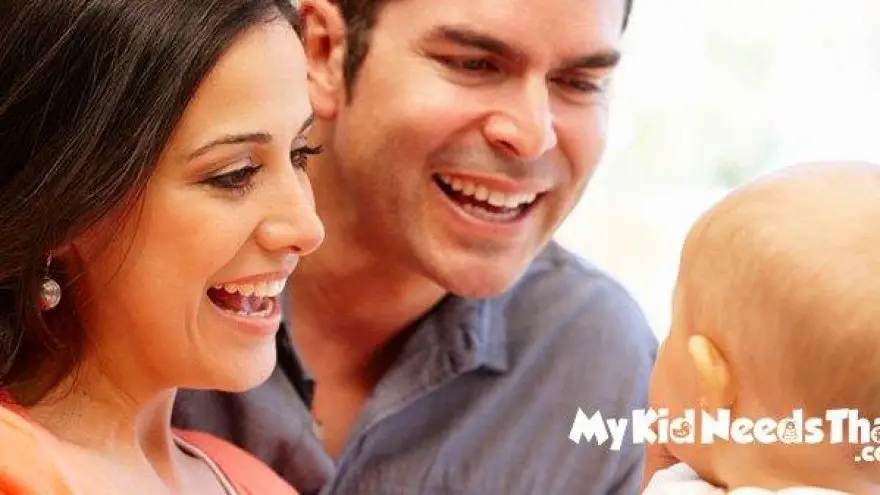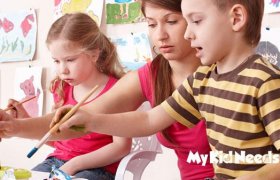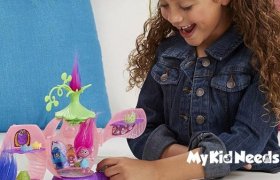When Do Kids Start Talking?

Kids have differing speeds in learning an ability. This is also the same when it comes to their communication skills. As babies, kids can only communicate through their loud cries or little screams.
But as months pass, it is necessarily true that they start to develop the ability to talk. In some instances, however, this skill is learned in a slow pace consequently leading to a latent learning.
Delays in a kids’ ability to talk have made numerous parents panic especially when kids of the same age have developed this communicating skill well. Parents also end up comparing their kids to their older siblings who have learned the ability at the same age. But as experts have claimed, most of the time parents shouldn’t be alarmed.
The reason they commonly cite is the fact that kids have varying paces when it comes to learning this ability. Thus, parents should not be troubled when their kids do not exhibit the skills at the average time kids usually do. While these average timeline which became the standard, parents should be informed of that their kid might just be a late bloomer.
In addition to this, there are possible steps in order to help their kid cope with their batch mates.
How Do Kids Learn How to Talk?
Based on research, the peak time for learning speech and language skills are the first three years of the kid. The more exposed kids are to possible learning situations such as people having conversations, sounds, and sights which encourage speaking, the greater the chances that they will acquire the ability to talk.
This is because kids usually mimic their surroundings. Thus, being exposed to the former makes children absorb more and more words which when repeated can bring about their first word and consequently learn how to speak.
Normal Timeline for Kids Talking
It has been given that kids have their own paces when it comes to learning the ability to speak. However, experts have devices such as a milestone chart or a general timeline with which parents themselves can assess their children.
Below is an example of the timeline with the respective descriptions with regard to the average communicating ability exhibited by most kids.
-
Before 3 Months
The usual form of communication skills during this stage are the children crying whenever they need or want something. For example, when they want to be fed, they would cry out loud in order to catch the attention of either their parents or the maid.
Other communication is done by the baby through ear-piercing screams.
-
3-4 Months
The child should be babbling words, whether understandable or not. This in a sense is a way of communicating that the child further develops in the succeeding months. Babbling is a sign that the child wants to say something in relation to what he or she wants to be done or given to him or her.
-
On or Before 1 Year Old
By this age, a kid is expected to have the ability to utter at least a single word like the usual mama and dada. This is also the time when the kids are able to understand simple requests or instructions like “Get your toy” or “Smile.”
-
2 Years Old
Kids this age, on the average, have the capacity to speak two- to three-word phrases which somehow make sense as if it were a complete sentence.
-
2 to 3 Years Old
The kid should now be able to talk more clearly and respond to instructions made by another. Though this is essentially developed by the age of two, by this time, the kid should be able to respond faster in short conversations.
What to Do When Your Kid is Considerably Late in Learning toTalk
Aforementioned in this article is how the kids have higher chances of learning when exposed to a world wherein words are very evident and so are sound. In line with this, the parents may opt to do or undertake the following to aid their child in developing this communication skill.
-
Constantly Talk to the Kid
Whether a child has not developed the skills to verbally respond to a conversation, parents should still spend time talking to them. This is not only to know that the kid has the ability understand what the parents are saying. But, this also fosters an environment wherein the little one may copy words or phrases.
-
Read Books to the Kid
The books for this activity need not be too wordy. Parents should remember that the materials to be used for reading to the kids should still be age appropriate. These types of books are more comprised of images or photos rather than words. This activity enhances the child’s ability to associate a figure or image with the word you, as their parents, use to pertain to the image while you read it to them.
-
Take Time to Wait for Your Kid’s Response in common Daily Scenarios
This is the mistake parents usually make. When talking to kids, a certain time should be allotted for the kid to respond either to the request or question made by the parents. By doing so, parents are not only encouraging them to respond but also letting the words they have uttered to first sink into the toddlers’ minds.
When Should You be Worried?
Certainly, there are red flag situations in delayed acquiring of the speaking ability. First, it is alarming if the kids do not respond to sounds or do not vocalize. By vocalize experts mean the attempt of a kid to utter words or even babble in the early stages of development.
Second, when the kid has not spoken a single word, whether clear or unclear a span of 16 months of age. Third, when the kid does not respond even to the sound of his or her name, this response need not be another word, rather it is just a gesture of acknowledging when one is being called to attention.
In the end, while the kids have their respective paces in learning, parents should still be wary of the flag-worthy situations. Parents should remember to foster an environment conducive for learning. To sum up what the parents can do to help their kids, here are three words to remember: Talk, Read, Listen.







